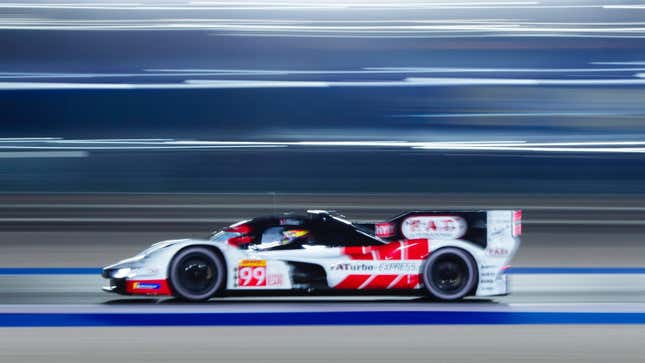
In light of what the series is politely calling “the geopolitical situation in the Red Sea,” the FIA World Endurance Championship will be sending the full grid of 37 cars, plus all related equipment, by air instead of slower and far less expensive sea freight. The “situation” is that Houthi rebels in the Yemen have been firing on trade ships in the Red Sea in an attempt to support Hamas through ongoing warfare in Gaza. For obvious reasons, it’s much better for the series that these cars don’t get firebombed at sea.
The resulting ripple effect sea freight delays that these attacks have caused meant that much of the WEC grid didn’t arrive to Qatar in time for pre-season testing last month. The delay meant that the testing session was delayed two days, though Saturday’s first race of the season, the Qatar 1812KM, went off without a hitch. Shipping the cars by water to the Imola 6 Hour race, scheduled for April 21, would have meant traversing the Red Sea to travel through the Suez Canal into the Mediterranean Sea.
“This was the only viable solution which would guarantee the safety of the WEC’s freight, as well as everything arriving on time for Imola,” the series said in a statement.
The series isn’t simply being benevolent here, as the cost of air freighting will be passed along to the teams. According to reports from Motorsport.com, some teams face a shipping bill as high as $318,000 to get their cars to Italy this week. Teams participating in testing sessions at Imola this Sunday were given first shipping priority.
The Chip Ganassi Cadillac team was the only Hypercar team to opt to send their cars on the water, which meant their cars and components arrived late, while most of the GT3-class cars took that option. It makes sense that these smaller and lighter-funded lower-class cars would opt for a slower-but-cheaper method. For this upcoming round, at least, their decision was made for them by the series.

